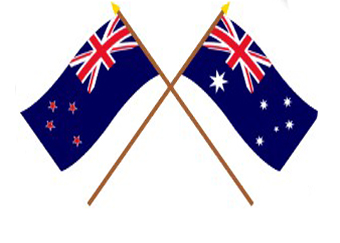Australia-New Zealand monetary union is not practical, study
 According to a new study conducted by a joint government team, a monetary union between Australia and New Zealand is not a practical option due to various political and economic differences between the two countries.
According to a new study conducted by a joint government team, a monetary union between Australia and New Zealand is not a practical option due to various political and economic differences between the two countries.
The draft report prepared by the officials of the two countries said that the cost of forming the monetary union outweighs its benefits to the countries. The size of the Australian economy is about seven times that of its smaller southern neighbor and the central banks of the two counties have followed different monetary policies over the years.
"They imply a loss of autonomy over monetary policy and exchange rate flexibility, which are important tools for macroeconomic stability. Tying New Zealand's fortunes to Australia's currency would result in monetary policy being driven by Australian conditions, with decisions made by the Reserve Bank of Australia," the report said.
The New Zealand dollar and the Australian dollar are among the most freely traded currencies in the world and often fluctuate in unison. The monetary union would require a certain degree of political union but the will as well as the public support for such political integration does not exist in the counties.